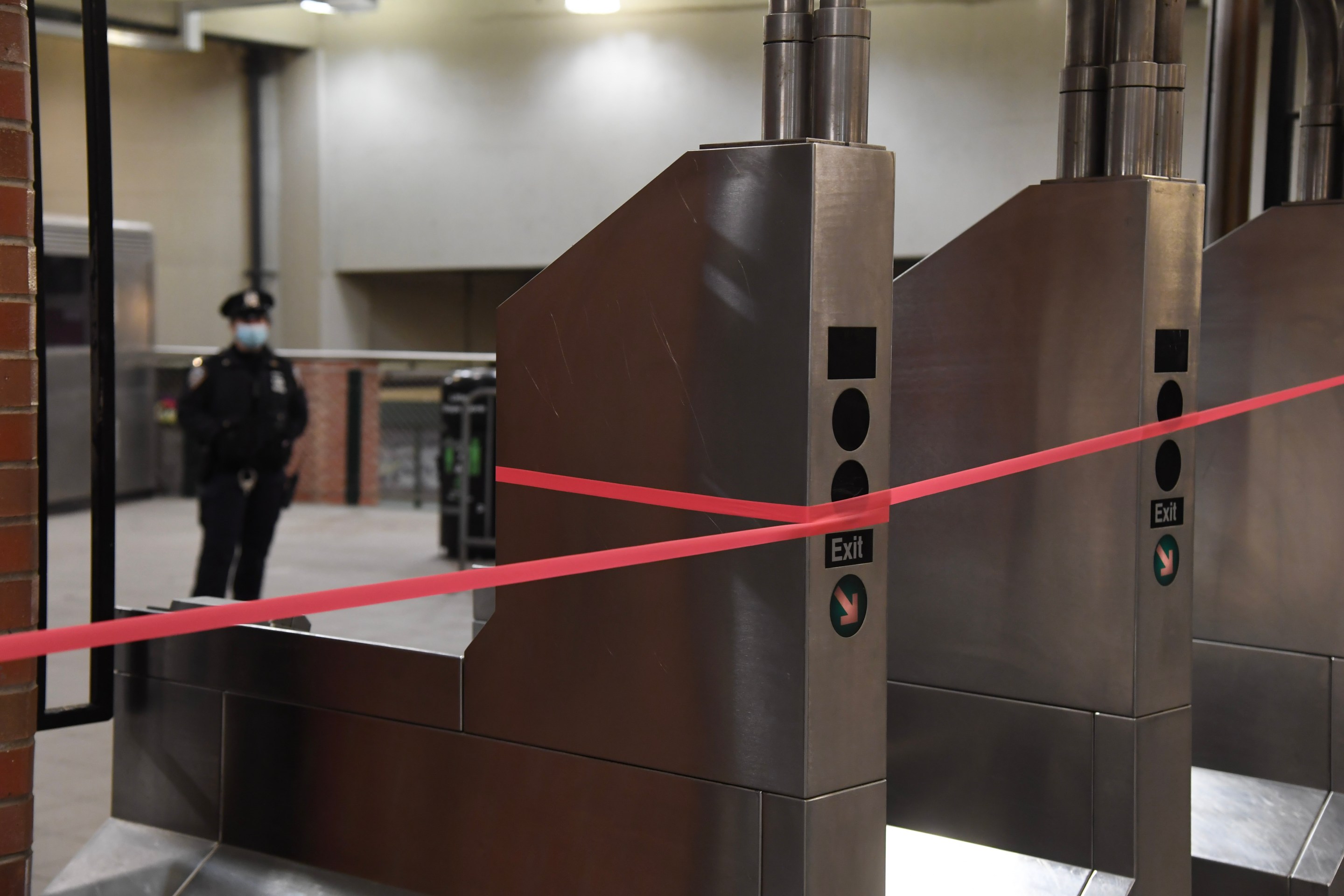
Guess that's why they call it a clown car instead of a clown bus.
A bipartisan group of U.S. senators revealed a coronavirus compromise bill on Tuesday morning that provides less than half of what transit agencies need, an offer that advocates and transit agencies greeted with like being given a lump of coal on Christmas.
The $908-billion bill from a group that includes Sen. Mitt Romney (R-Utah), Sen. Susan Collins (R-Maine), Sen. Joe Manchin (D-West Virginia) and Sen. Mark Warner (D-Other Virginia) is what Warner called "an interim package" before Joe Biden takes office in 2021. Among other pieces of kind-of relief, the bill offers $45 billion for the country's transportation sector as a whole, of which $15 billion goes to transit agencies.
NEW: Breakdown of the funds today's congressional proposal would send transpo industries (with amounts sectors have requested from federal government in parens)
— Sam Mintz (@samjmintz) December 1, 2020
Airlines: $17b ($25b)
Airports: $4b ($13b)
Transit: $15b (At least $32b)
Private buses: $8b ($10b)
Amtrak: $1b ($5b)
It's an offer that's less than half of the $32 billion sought by transit agencies nationwide — and would barely cover the $12 billion that New York's MTA needs to fill its four-year budget hole, a gaping maw so big that agency officials said would require service cuts of up to 40 percent. Earlier this year, transit officials in the San Francisco Bay Area said they needed $1.3 billion, part of a $3-billion ask for all of California. Their counterparts in Seattle asked for more than $625 million. The DC subway system is trying to close a $500-million deficit next year.
A spokesperson for Warner said that the proposed transit money hadn't been apportioned yet to the various agencies across the country — but in any event, it's not big enough.
So as transit agencies nationwide get 46 percent of what they asked for, the airline industry is being offered $17 billion, which is almost 70 percent of the $25-billion rescue package America's airlines sought. The airline industry does employ more Americans than transit agencies — 702,068 full and part-time employees compared to 436,000 in public transit — but New York's MTA alone moves more people every day than the airline industry does on its best day.
Just to drive that point home:
- During the pandemic:
- airlines moves around 900,000 to one million people per day
- transit moves about 2,700,000 people per day in just the New York metropolitan area.
- And in "normal" times
- airlines carry about 3,000,000 people every day
- transit roughly 7,000,000 people every day in just the New York metropolitan area.
Sen. Chuck Schumer (D-N.Y.), last heard bemoaning how Cal Cunningham's zipper problems cost Democrats a Senate seat in North Carolina, did not respond to a request for comment on the bill. An MTA official said that the agency was still waiting for more information. But Pat Foye, the MTA chairman and CEO, recently floated the $12-billion figure for the agency "to avoid the deep cuts we have been talking about that will devastate our customers and cripple our economy."
Advocates panned the offer as not being in touch with reality and demanded the senators step up with the full offer.
"The $15 billion for public transit proposed by several senators today falls short of what this moment demands," said Riders Alliance Communications Director Danny Pearlstein. "Congress must face the reality that public transit undergirds the nation's most productive economic regions and is a lifeline for millions of essential workers. A skinny relief bill is an anemic response to the worst crisis public transit has ever faced."
Other thinkers are suggesting that Democrats should take the deal, as bad it appears, since there's no guarantee that the Democrats will win both of Georgia's runoff elections in January — and failure to get both seats means that Sen. Mitch McConnell (R-Kentucky) would remain majority leader. He's been entirely uninterested in a larger relief effort. How uninterested? McConnell recently released a $500-billion coronavirus relief bill that provides $0 for transit agencies.
— Jake Sherman (@JakeSherman) December 1, 2020






